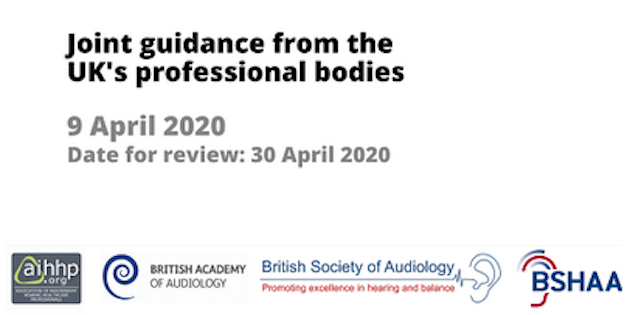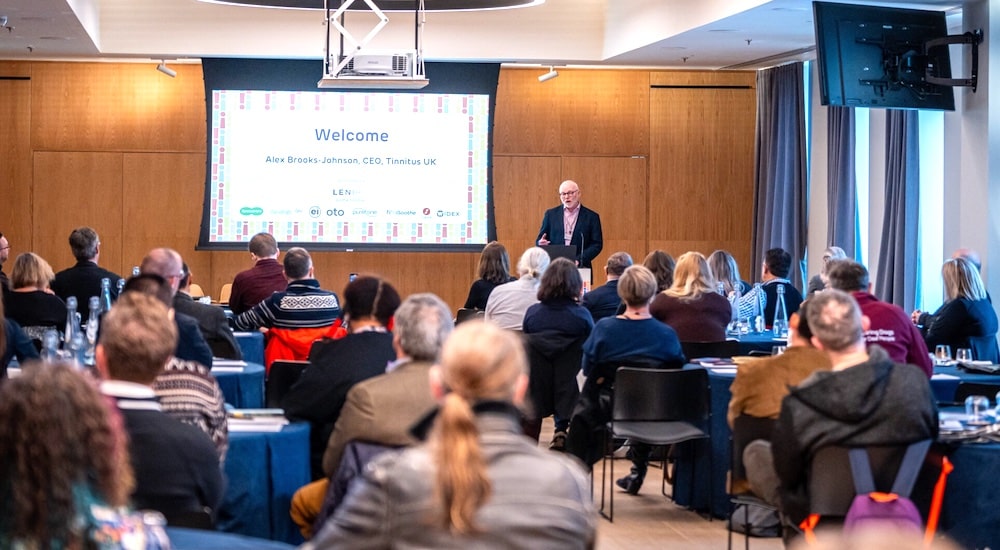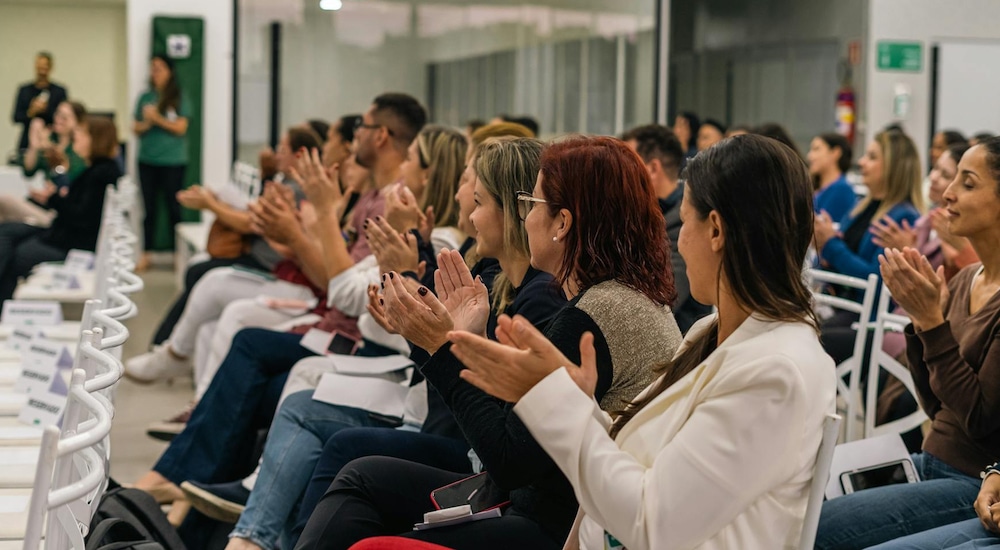AWN Coronascope: UK - unified response on practice guidelines as audiology finds ways to serve hearing loss patients
crisis
The UK's four leading hearing healthcare professional associations today (April 9) issued a joint guidance document on practice during the coronavirus pandemic.

The online, downloadable guidance paper is designed to help providers "develop a detailed local policy to reflect local priorities, resources, and service-specific urgent requirements", and input to it has come jointly from the Association of Independent Hearing Healthcare Professionals (AIHHP), the British Academy of Audiology (BAA), the British Society of Audiology (BSA), and the British Society of Hearing Aid Audiologists (BSHAA).
An introductory section points out—with the relevant government references—that although audiology services do not engage in life-saving procedures, the condition of hearing as one of the most important sense organs identifies audiology as an "essential service". While professionals have been called on to cease routine face-to-face services, they are advised to adapt to skeleton remote work. Also underlined is the need for hearing care professionals to be ready to play a greater role if required to do so: "It is recognised that during this pandemic, regulators have stated that – with specific training – audiology professionals may be asked to broaden their scope of practice using transferable skills to support areas in the wider healthcare system during the pandemic.
The guidance document is structured into five main areas: triage; remote support; hearing aid drop-off; appointment in clinic with 2m distance; and appointment in clinic where 2m distance is not possible.
The national backdrop
In the days prior to the release of these joint guidance proposals, the UK as a whole faced the most daunting domestic figures for Covid-19 cases and deaths, the latter surpassing 900 in one day for the first time on Wednesday, April 8. By Thursday, "confirmed" Covid-19 cases for the UK were approaching 61,000 and 7,100 respectively.
Lockdown measures were expected to be tightened on Thursday, April 9, following a set of self-isolation rules enforced since March 23 that have been less stringent—and with softer penalties for breaking them—than those imposed at least one week earlier in hard-hit countries such as Italy, Spain, and France. In the crossfire of criticism over responses experienced by every country on the planet, Boris Johnson, himself hospitalised with Covid-19, has come under fire for not acting sooner with lockdown measures.
"Signpost if you are providing support services"
On March 23, doors closed immediately on the country's audiology centres, with services moving in most to remote or telehealth models, many of them makeshift. Hearing healthcare professional associations and charities issued regularly updated advice in parallel with the comprehensive guidance for clinicians issued by the UK's National Health Service. All bodies urged compliance with these safe-practice measures in line with the specified national measures for prevention of infection, and isolation of confirmed coronavirus cases.
Prior to the joint guidelines now issued, the British Society of Hearing Aid Audiologists (BSHAA) published its own guidance, its President Andrew Coulter underlining the need for audiologists to provide telephone or online consultations and remote care while keeping within government measures. "I urge you to access every bit of support that your business is entitled to. I want to see every single BSHAA member business still around when we get through this crisis," said Coulter in his initial coronavirus website address.
The British Academy of Audiology (BAA), which was gathering evidence and examples of service models for the the continuing provision of NHS Audiology services in the immediate future, provided an immediate recommendation that all services "maintain a skeleton emergency service" to support assessment of sudden sensorineural losses, assessment of post-meningitic patients, and follow up of bilateral newborn screen referrals. The BAA's "essential" list covered: hearing aid repairs for all current users – delivered remotely; impressions, though with limited activity to respect a one-metre distance from the patient, with special consideration for key workers, carers, paediatrics, vulnerable adults and severe-profound losses, and those under end of life care; replacement of lost aids, the first choice being using reprinted ear moulds; and monitoring for ototoxicity patients.
Tinnitus support
Another frontline organisation, the British Tinnitus Association (BTA), made a general call for audiologists to signpost to support services in the absence of medical appointments, ahead of anticipated Covid-19 NHS redeployment. “We know that responding to the Covid-19 outbreak is at the top of everyone’s priority list, and rightfully so, but it’s also important to make sure that patients with new and ongoing health conditions, such as tinnitus, are supported," said BTA Chief Executive, David Stockdale.
Source: BSHAA,…


